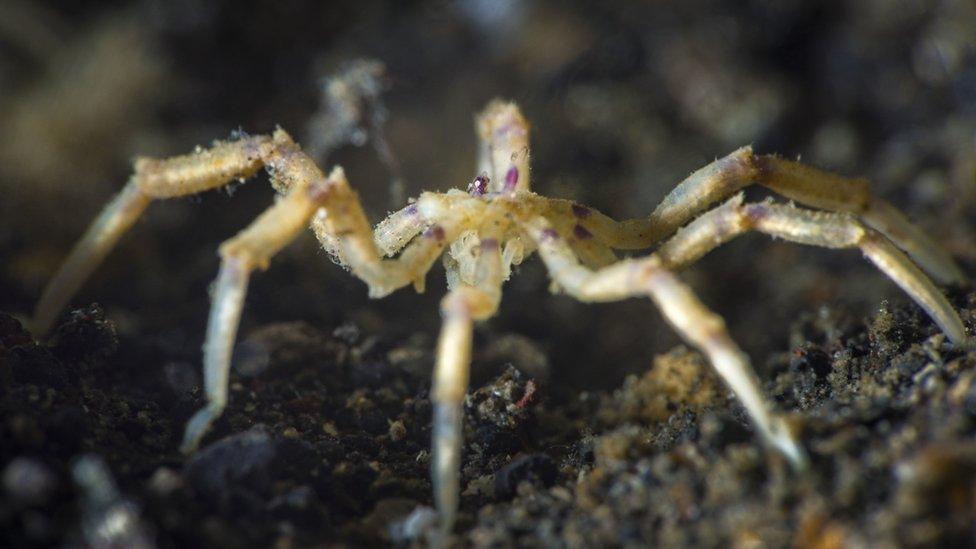Meet the sea spiders who can re-grow their bottoms!
- Published
- comments

We already know some animals can re-grow their limbs but these sea spiders are pushing the limits even further...
Scientists in Berlin have been left amazed after discovering they can actually regenerate their bums too!
It's hoped the findings could one day lead to more advanced treatments for people who have undergone an amputation.
But how exactly did they make this cheeky discovery? Read on to find out!
Sea spiders are a type of arthropod - an invertebrate with an exoskeleton instead of an internal skeleton or backbone.
Other arthropods like crabs and centipedes have already been found to be capable of re-growing their limbs.
Until now though, scientists didn't know they could regenerate more than just their limbs.
This is an image of one of the adult spiders after it had regenerated its body parts!
Professor Scholtz led the research and amputated the back ends of 23 spiders.
19 of the young spiders managed to grow back all or nearly all of their missing body parts - 14 of them also grew back their bottoms.
The adult spiders weren't quite as good at regenerating their bums - in fact none of them managed it, but they were still able to survive two years later.
Scientists previously thought it was only possible for arthropods to grow back their limbs due to their hard exoskeleton but the study even showed that 16 of the young spiders went on to shed their exoskeleton (otherwise known as moulting).
Animals with an exoskeleton need to moult to be able to grow. They shed their skin and have to wait for their new exoskeleton to harden which makes them more vulnerable to predators. Some animals even eat their exoskeleton!
This scorpion has just shed its exoskeleton which you can see to the right
Mammals like humans can only regenerate some organs like their livers and skin.
Further research on how animals and their cells are able to regenerate could lead to advancements in human medicine.
Professor Scholtz hopes it could one day help amputees - someone that has had all or part of a limb removed.
- Published7 September 2021
- Published27 March 2021
- Published19 June 2022
